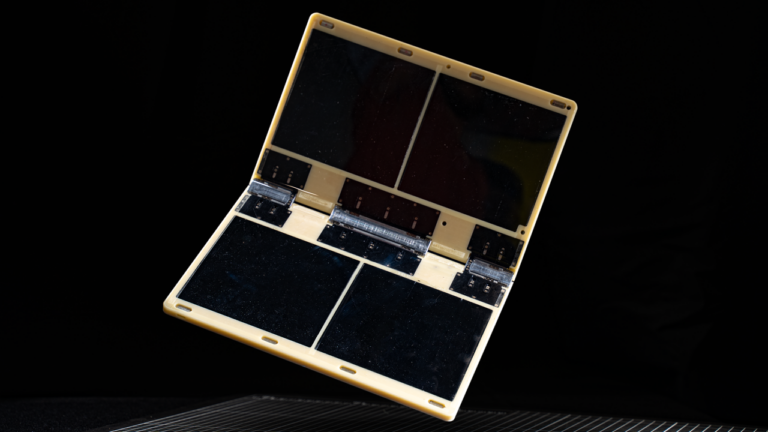[ad_1]
“None of the hinge providers were willing to create a hinge for our laptops with the second screen that folds upright,” Krohn explains. “They all said that it’s not possible. Our own mechanical engineers created our hinge mechanism, and we had to teach the supplier how to manufacture that and make it work.”
If you’ve seen Lenovo’s X1 Fold device, you’ll notice it offers stylus compatibility. The same goes for Samsung’s larger foldable phone, the Galaxy Z Fold 4. The ZenBook 17 Fold OLED does not offer pen support, but that wasn’t for lack of trying. “We very much would like to have stylus support,” Krohn says, “but this is part of the process and the learning pains of growing into a new form factor. We decided not to support a stylus because, depending on how you use it, you can damage the [plastic] panel, and we just wanted to be extra careful and avoid this, especially for the first-generation device.”
One component that foldable PC manufacturers like Lenovo and Asus have had to wrangle with—that foldable phone designers have not—is the keyboard. Phone users are familiar with a mobile touchscreen interface and the interaction that affords, but there’s not yet a good PC equivalent. As a consequence, foldable PC makers are including a Bluetooth keyboard accessory with their experimental designs. This brings its own challenges, including that all-important weight consideration.
“When the data is there, we could make it optional,” Albinus says. “For the next generation of these displays, there may need to be a smaller bending radius [of the folding panel]; there’ll need to be more options to design it in different ways.” The hinge’s current larger bending radius provides a useful gap for the keyboard to nestle in when closed.
Chris Harrison, a computer science researcher and director of the Future Interfaces Group at Carnegie Mellon University, doesn’t see a complete switch to touchscreen keyboards—or a useful lessening of the weight burden—for this kind of device happening soon. “The QWERTY keyboard is at maximum,” he says. “You don’t have to improve it. It’s as good as it gets, so it’s hard to displace. You can type on a phone, but laptops do need to deliver more in terms of typing.” He offers spreadsheets as an example of the type of work that would be tough without a keyboard.
Folded Bills
The elephant in the room is, of course, this foldable PC’s high price. Asus knows this. “Clearly price was not a consideration,” Krohn says. “When we do these kinds of technological innovations, it’s the flag-bearer and everybody’s paying attention to it and looking at it. You have a much bigger budget. I know our design guys, they never get enough budget; they always want more budget to do something really cool. This is not a mass-market product. This is not for everyone.”
[ad_2]
Source link

